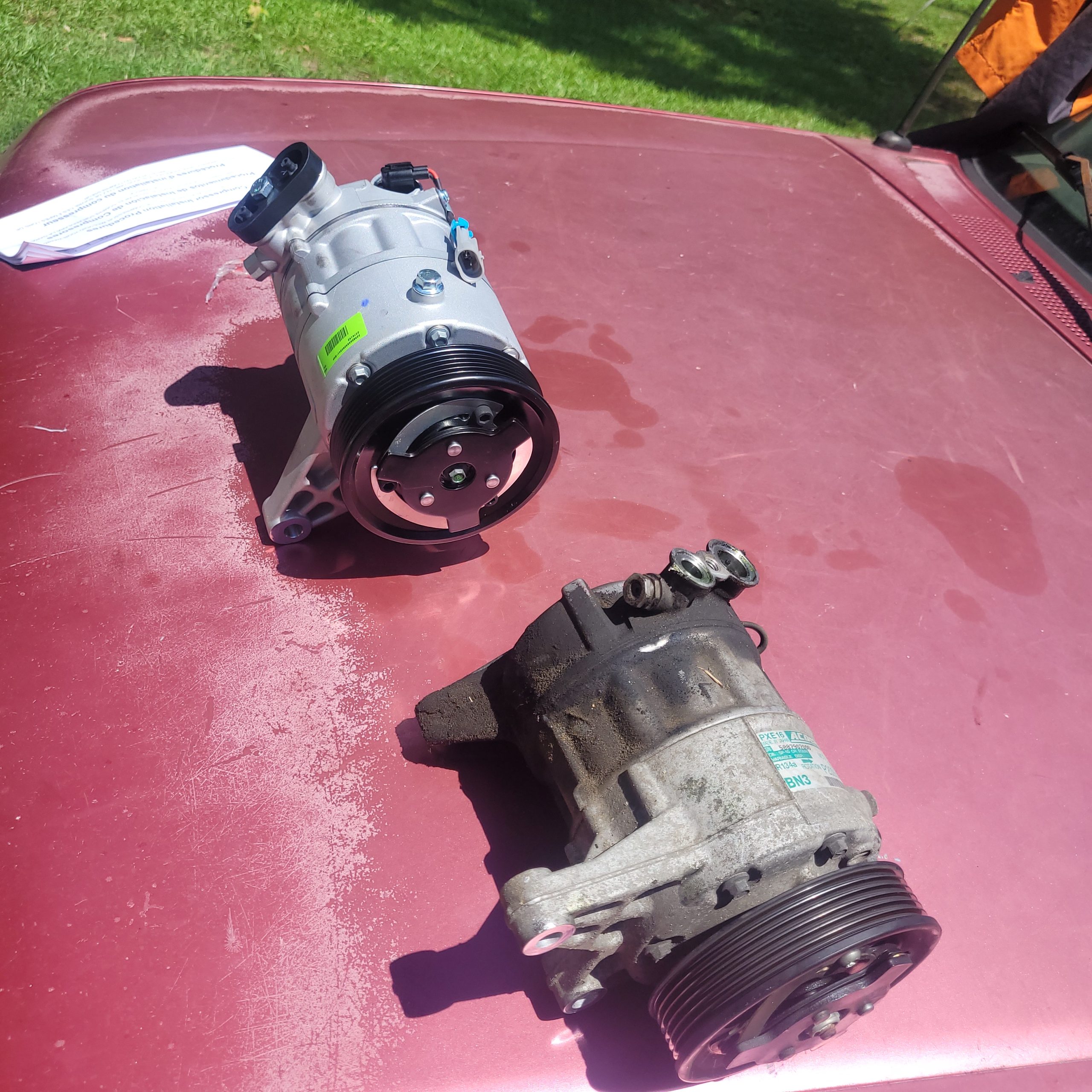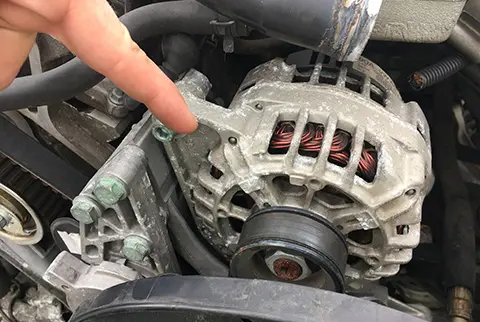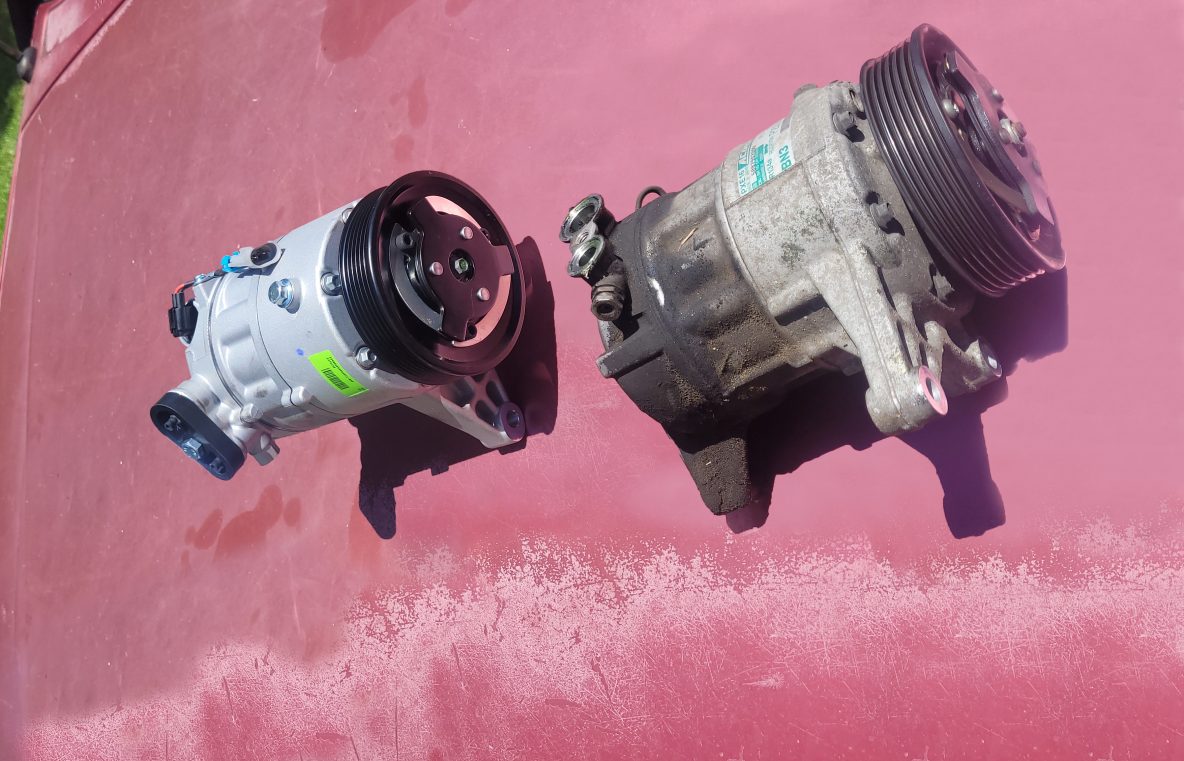Using New Parts vs Old Parts
Why Scrimping on Car Parts Could Cost You Big Time
Picture this: Your car’s making that weird noise again, and your mechanic gives you the bad news—it’s time for a new part. You’ve got options: head to the junkyard, roll the dice on a remanufactured part, or go all-in on a shiny new one from a trusted retailer. Sure, saving a few bucks sounds tempting, but what’s the real cost? Let’s dive into the nitty-gritty of why the cheapest option might not be the smartest.

1. The Lure of Used and Remanufactured Parts
We get it—saving money feels good. Used parts from a junkyard or remanufactured parts seem like a bargain, especially when you’re staring down a pricey repair bill. And for those with an older car, finding new parts might feel like hunting for a needle in a haystack. But before you grab that “deal,” there are some things you need to know.
2. The Dirty Secrets of Junkyard Parts
You might think you’ve struck gold in that pile of rusty metal, but here’s the truth: you never really know what you’re getting with used parts. That alternator you just pulled might have been through more than its fair share of abuse.
With this option you've gotta remember that you're replacing the part in your car, because it's reached it's life expectancy. So pulling a part from a car in the junk yard that is the same age as yours will likely mean it's nearing the end of its life expectancy also.
Plus, good luck finding a warranty—most junkyards offer little more than a “sold as is” shrug. If you’re betting on a junkyard part, you might end up playing a game of automotive roulette. Junkyard parts are simply a bad idea and move unless you're actually a decent mechanic and know what you're pulling from the yard, and are willing to do the work again shortly.

3. The Not-So-Great Side of Remanufactured Parts
Okay, so you’re thinking, “Remanufactured is better, right?” Sure, it sounds fancy, but the quality can be hit or miss. And we do mean hit or miss. Frankly, some remanufactured parts are like a bad movie sequel—they might keep the story going, but it's just not as good as the original. Bad writing, bad performance and occasionally shunned by the actors themselves. While they might come with a warranty, it won't change the fact that you'll likely be back in the shop and carless again within a few short weeks or months. Plus, these parts might not have the stamina of something brand new, meaning you could be back in the shop sooner than you’d like.
Fac t of the matter too is, all mechanics hate working with reman's because they don't like to repeat their same work. Seriously. It doesn't do the mechanic any favors. This is because the customer is always mad that they're having to get the car repaired again for the exact same reason, on top of the fact that they're not getting paid to perform the exact same work as they did just 3,000 miles ago.
4. The Better Side of Remanufactured Parts
Look. Remanufactured parts might not last as long, but they will bail you out in a pinch and this is why people frequently choose a remanufactured or used part vs a new part. First off, they're a whole lot cheaper. Consumers can save anywhere from $50 to $200 dollars getting a remanufactured part over a new part. And if you're tight on cash, there's really no other option. Just know the downside is, you might end up without a car again within the year for the exact same reason. Now, having said that. This isn't always the case. Sometimes you'll get lucky. This is why we said they are hit and miss previously.
Secondly, remanufactured parts are built to OEM specifications and frequently come with a lower level warranty. This is because reman'd parts are at their core the OEM part. They have simply been stripped down and had the worn components replaced or cleaned. This is not to be confused with refurbished as that is different.
And lastly, they do play a solid role in reducing carbon footprints and are considered greener than new parts. So if this factors into your everyday purchasing decisions, then you'll want to pay attention here. Remanufacturing contributes significantly to the reduction of CO² emissions, and also offers end consumers an economical and safe way to maintain their cars on the road. According to Circulate, an organization that researches sustainability, 80% less energy is used during remanufacturing compared to that used in the production of new automotive parts. Remanufacturing also conserves precious raw materials such as steel, aluminum and copper.
5. Why New Parts Are the MVPs
Here’s where things get good. New parts might cost more upfront, because they’re the VIPs of the car world. They come with a full warranty, so you’re covered if anything goes wrong. And let’s be honest, nothing beats the reliability of something that’s fresh off the production line. New parts are designed to play nice with the rest of your car, giving you that smooth, worry-free performance that you just can’t get with used or remanufactured options. Plus, your mechanic will probably thank you for making their job a little easier.
6. The Long Game: Why Spending More Now Saves You Later
Here’s the kicker: while you might feel like a budgeting genius with that used or remanufactured part, the long-term cost can add up. You’re looking at more repairs, more downtime, and maybe even a hit to your car’s resale value. Investing in new parts isn’t just about avoiding headaches—it’s about making sure your car stays in top shape for years to come. So, do yourself a favor: don’t pinch pennies on parts. Your future self (and your car) will thank you.
At the end of the day, the choice is yours. But remember, while used and remanufactured parts might seem like a good idea at first, they often come with hidden costs. New parts from a trusted retailer might be a bigger investment, but they’re the kind of investment that pays off in the long run. So, the next time your car needs some TLC, think twice before going the cheap route. And if you’re ever in doubt, give your friendly neighborhood mechanic a call—they’ll steer you right.


